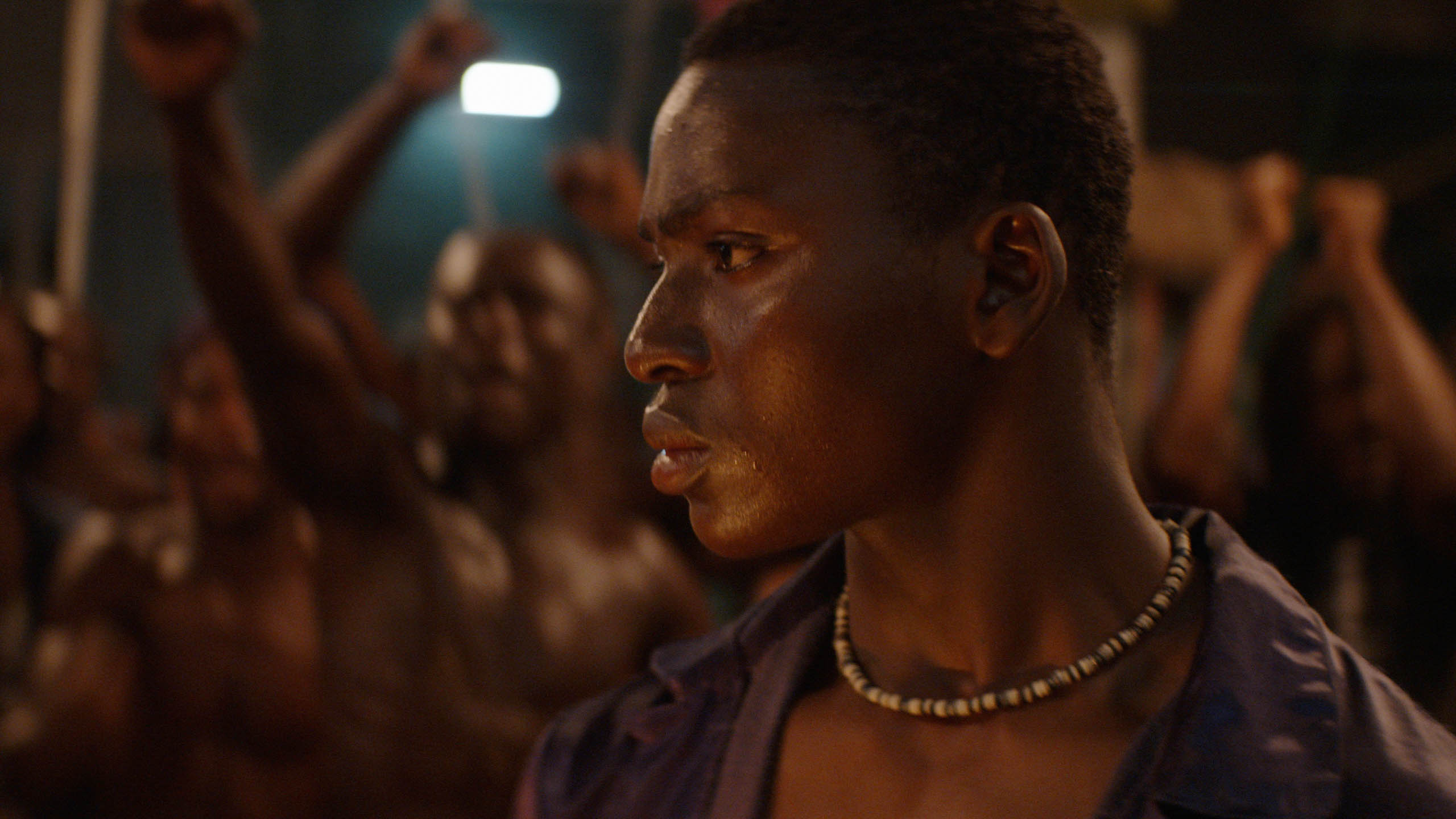What to Watch Verdict
Night of the Kings is a love letter to storytelling, with a simple yet fascinating premise. You can get a little lost in the dual narrative, but it's worth being transported to a beautiful new world.
Pros
- +
🌙 Gorgeous cinematography.
- +
🌙 Masterful world-building.
- +
🌙 A beautiful ode to storytelling.
Cons
- -
🌙 Two competing narratives.
- -
🌙 Leaves a lot of loose threads.
Night of the Kings is part of our Sundance Film Festival 2021 coverage. You can find all of our reviews here.
In a year where the idea of a blockbuster movie is constantly being redefined, Philippe Lacôte has made a distinctly epic film. Night of the Kings is an ode to storytelling, with particular affection for oral traditions and their well-defined role in West African culture.
The film follows a young pickpocket (Koné Bakary), newly arrived at the MACA prison in Abidjan. He is greeted by the stares and jeers of inmates who quickly dub him a storyteller or, as they name him, a Roman. To survive the night, he must compel the other prisoners with a story that lasts until sunrise. In this, the story's narrative is both simple and complex: while the Roman’s task is simple enough to understand, Lacôte drops the audience into a fully realized world, customs and practices he only sometimes deigns to explain. Early in the film, the Roman is greeted by an older inmate, Blackbeard (Steve Tientcheu), who seems in full control of the prison. “How are things on the outside?” he asks him, but gets no response in return. The more we learn about the prison, the more warranted this question is: MACA is otherworldly, so disconnected from the world that the inmates have established their own culture and rituals. At its center is the art of storytelling.
Night of the Kings lives somewhere between the cinematic and the theatrical, fully embracing the traditions of both. Given how long it’s been since most of us have experienced storytelling with a crowd of people, it only makes sense that the film's energy be so enticing. Many of the scenes see the Roman surrounded by a sea of his inmates, faces staring in awe and anticipation of his tale. Though he initially struggles to find a fitting story, he settles on the obviously embellished biography of a street criminal, Zama King who in his account becomes the son of a blind sorcerer and an ancient queens advisor. Jumping between the two narratives grants us access to the sweeping hillsides of Côte d'Ivoire and the more intimate setting of small villages. Here, the cinematography shines, relishing in the country’s natural beauty — though this is also true of time spent with the prisoners. When we first approach MACA, the camera overlooks lush greenery, crossing a vast expanse of trees before finding the building. Even inside, the images are so sharp, vivid and striking, you almost forget they show a prison.
Much like a folktale, Night of the Kings progresses confidently, with little explanation, only adding to its inherent mysticism. Its narrative raises more questions than it finds the time to answer which, to its credit, sometimes works in the film's favor. Our initial confusion serves the story quite well: we arrive with the Roman and are thrown in with as little knowledge as possible. There is an obvious communal understanding amongst the prisoners, an established culture that we can only read so far into. Like the Roman, we quickly discover that his life is on the line, but can’t quite figure out why. Eventually, this lack of context takes its toll and curiosity wins out. This world is so beautifully established that, by the end there’s a desire to make more headway than we are ever allowed. Threads we never quite get context for are left hanging, leaving us without clarity for notable dramatic moments. Another obstacle is presented by the film's dual narratives, which are never quite as seamless as we might hope. The Romans story and the film’s real time events continuously interject one another, often complicating our investment. The film is never unintentionally choppy — often using the transitions to great effect — but is choppy nonetheless.
Still Night of the Kings manages to create a tense and hypnotic atmosphere, approaching the story with inherent love for the craft. The act of storytelling is portrayed as deeply spiritual and it's impossible not to get caught up in those feelings yourself. The Roman’s story is escapism in its purest form — providing an oasis for him and his fellow inmates. With his words, he is granted the opportunity to save his life and immortalize himself in their minds. Night of the Kings offers a beautiful visualization of the longstanding tradition of oral storytelling and itself, crafts a tale that is uniquely imaginative.
The latest updates, reviews and unmissable series to watch and more!

